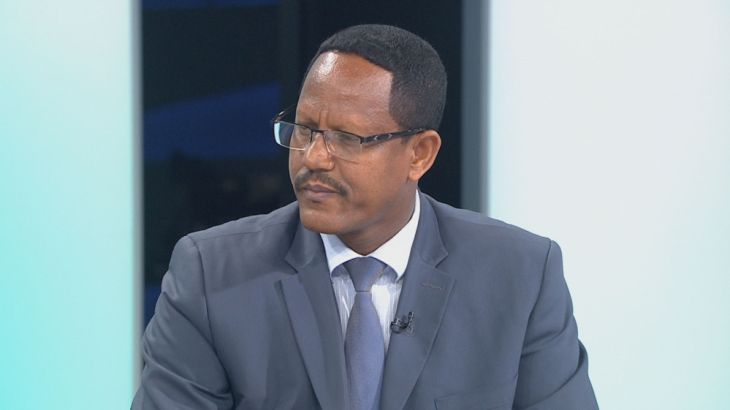
How long can Ethiopia state of emergency last?
The UN has warned that more than a decade of development is at risk if Ethiopia continues to ban political opposition and muzzle the media.
A decade of development in Ethiopia, one of the world’s fastest-growing economies, is at risk if the country continues to ban political opposition and muzzle the media, the UN has warned.
Ethiopia is now in its eighth month of emergency rule, which was imposed in October last year to crush its biggest protests in 25 years.
The unrest started in the Oromia region in 2015, when the largest ethnic group, the Oromo, took to the streets demanding more rights.
Demonstrations then spread to the Amhara region, home to the second major ethnic group.
The state of emergency, initially declared for six months, included curfews, social media blocks, and restrictions on opposition party activity. It was extended for another four months in March amid reports of continuing violence.
READ MORE: Report – 669 killed in Ethiopia violence since August
Almost 700 people have been killed in the violence, a government-sponsored commission said in April, but human rights groups said the toll could be higher.
Zeid Raad Al Hussein, the UN high commissioner for human rights, has urged authorities to allow UN officials to visit the affected region and establish the facts. He has expressed concern over reports of the arrest of more than 26,000 people.
Negeri Lencho, Ethiopia’s information minister, talks to Al Jazeera on the prospects for peace in his country.
Al Jazeera: How does Ethiopia as a country, as a government, respond to allegations of human rights abuses?
Negeri Lencho: Thank you. In the first place, Ethiopian government is an accountable government. Ethiopia is in the process of building democracy in the last two decades.
In that process, not only building democracy, but also working to alleviate the problem of poverty and escape the majority of the people out of poverty.
And as you’ve also noted, Ethiopia was in dire poverty 25 years before, but now it is one of the fastest growing economies.
|
|
Al Jazeera: And yet you’ve run a state of emergency first for six months and another four. That’s going to stifle growth, isn’t it?
Lencho: I understand that. Actually the economic growth we have achieved was made possible because of peace and stability, we know that.
The number one enemy of the people of Ethiopia is poverty, and we can get rid of poverty where there’s peace and stability.
And what we’ve experienced was compromising the efforts we’ve been making so far. The government was trying to respond to the demands that the people already expressed.
As a young democratic country, we believe that any problem, whatever the case may be, can be resolved through peaceful forum.
Al Jazeera: Dialogue. Is there dialogue happening? You talk about poverty being the enemy. But those two ethnic groups, they want to be recognised. They want their rights as ethnic people of Ethiopia to be recognised. Are you talking to them? Are you listening to them?
Lencho: Yeah. Actually the government is the government of these people as well. Because the government or people in government positions have not come from elsewhere, but from the people as well.
And they raise questions about the equitable use of economic benefits and employment and so on. But the problem was not the question that the public raised.
The government was responding to the question, to its level. But unfortunately what propelled the government to impose a state of emergency was the demonstrations you know took a different direction than the public intended. Not only the government.
It was compromising peace and order, the stability, which doesn’t help any of the people who have the question.
READ MORE: Ethiopia – Ethnic nationalism and the Gondar protests
Al Jazeera: Are you going to let the United Nations in? The United Nations High Commissioner wants access to people who have been arrested. There’s limits on the media as well. These things are not helping the country or its image.
Lencho: Actually it is the responsibility of the Ethiopian government because it is a democratic country, it is accountable to its people and what the government said was the government can’t do it. That means there is an independent human rights commission …
Al Jazeera: Which praised the government for the way it handled things.
Lencho: It did not praise if you really read the report. It came out with a report that seeks the offenders to be accountable at the same time, not only praising the government.
Actually the report shows that in some places the action taken was to restore peace and order, and was appropriate because of the way the direction took that was against the interests of the civilians as well.
Al Jazeera: So when can the Ethiopian people look to have their freedom restored? When will the state of emergency be lifted?
Lencho: Well, actually, the state of emergency in Ethiopia is not unique. When such problems arise elsewhere in different parts of the world.
We have even eased many of the provisions in the state of emergency and we have seen protests in the country.
It has been extended only for four months, and now one month has almost passed. After we expect it will be lifted you know when these three months end.